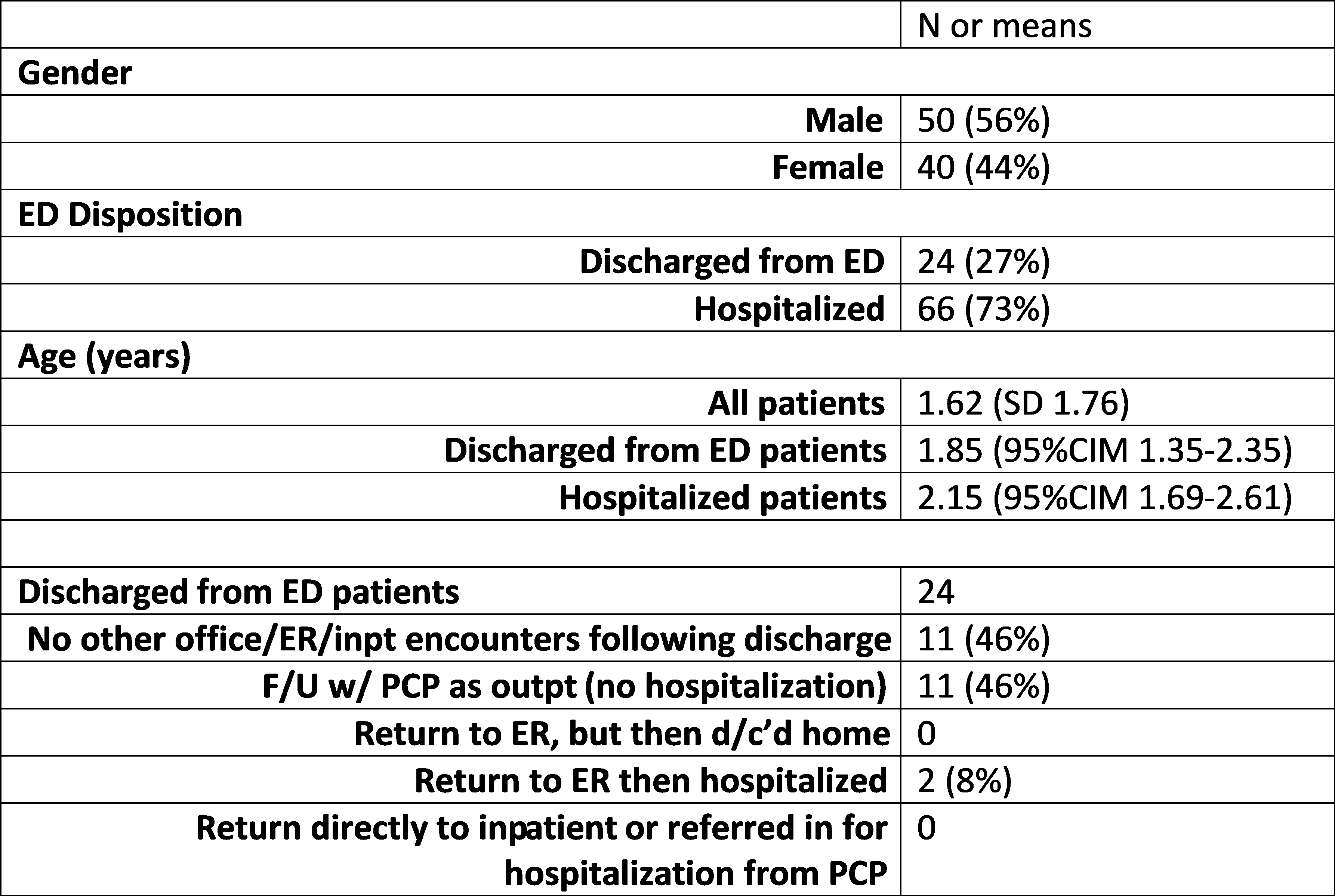Hospital Medicine
Session: Hospital Medicine 2
326 - Outcomes of Emergency Department (ED) patients discharged and hospitalized for Eczema Herpeticum
Friday, May 3, 2024
5:15 PM - 7:15 PM ET
Poster Number: 326
Publication Number: 326.466
Publication Number: 326.466
.jpg)
Bao Xin Liang (she/her/hers)
Medical Student
University of Hawaii, John A. Burns School of Medicine
Honolulu, Hawaii, United States
Presenting Author(s)
Background: Eczema herpeticum (EH) is a disseminated cutaneous infection caused by herpes simplex virus (HSV) 1 or 2, which develops in individuals with damaged skin barriers, such as patients with atopic dermatitis (AD). The severity of EH varies from mild to fatal. Some experts consider EH in young infants to be a medical emergency that requires prompt treatment with acyclovir and hospitalization. In addition, untreated EH can lead to bacterial superinfection leading to multiple organ involvement. Therefore, misdiagnosis and delay in treatment of EH can result in severe complications and should be treated promptly. Depending on the severity, intravenous (IV) and/or oral acyclovir can be prescribed. To date, there are no clear guidelines delineating the management of pediatric patients with EH; in particular, determining which patients require hospitalization for treatment with IV acyclovir and which can be discharged and treated with oral acyclovir.
Objective: To assess the outcomes of hospitalized and discharged patients presenting to the emergency department (ED) with eczema herpeticum.
Design/Methods: EH cases evaluated initially in the ED were identified using a data query of a tertiary pediatric center EMR. Identified cases were manually reviewed for the correct diagnosis, EH severity, and treatments. This chart review consisted of 90 patients presenting to a children's ED with eczema herpeticum from 1/1/2008 to 12/31/2022 in those under 7 years of age. Descriptive statistics were used to assess whether EH patients discharged with oral acyclovir have an increased risk of disease exacerbation.
Results: The results are summarized in Table 1. 66 patients (73%) were hospitalized from the ED. All of them were treated with IV and/or oral acyclovir. 24 patients (27%) were discharged from the ED on oral acyclovir. Of these 24, six patients were infants (under 12 months of age) and none of them required subsequent hospitalization. Two of the 24 patients (ages 1.15 and 1.9 years) returned to the ED and required hospitalization. All patients in both hospitalized and non-hospitalized groups ultimately did well. There were no deaths and no cases of herpes encephalitis.
Conclusion(s): Some patients presenting with eczema herpeticum can be discharged from the ED with close follow-up. A few of these will require hospitalization if their condition is worsening.

